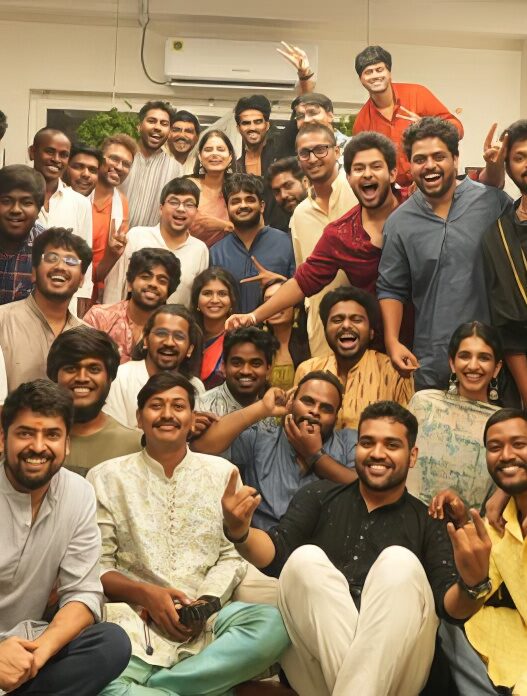In a significant move that could shape the next decade of Indian innovation, the Government of India has launched 100DesiDeepTechs—a national-scale initiative to identify, nurture, and accelerate 100 of the country’s most promising deep-tech startups. Spearheaded by the Startup Policy Forum in collaboration with Startup India, the Ministry of Electronics and Information Technology (MeitY), and IIT Madras, this program marks an inflection point in India’s evolving tech ecosystem.
Amid a global AI and deep-tech race, the #100DesiDeepTechs initiative sends a clear message: India is not just participating in the fourth industrial revolution—it intends to lead.
The Mission Behind the Movement
At its core, 100DesiDeepTechs is not just a startup recognition program—it’s a strategic national mission. The initiative aims to identify early-stage and growth-stage Indian startups working on scientific breakthroughs and technology-first solutions across sectors like:
- Artificial Intelligence & Machine Learning
- Quantum Computing
- Semiconductors & Chip Design
- SpaceTech & Aerospace
- Advanced Materials
- Synthetic Biology & Biotech
- Robotics & Autonomy
- Cybersecurity & Next-Gen Communications (6G)
The goal is to connect these startups with mentorship, capital, policy guidance, research support, and global market access—creating a pipeline of world-class tech companies born on Indian soil.
Why “Desi” and Why “Deep”?
The term “Desi” evokes more than geography; it’s a cultural statement. It signals that India’s identity, diversity, and ingenuity are the bedrock of this mission. These aren’t just startups built in India—they’re built for India, solving deeply local problems using globally competitive tech.
“Deep” tech refers to startups whose core innovation stems from scientific research or high-tech engineering. These are not simple platform plays or service clones—they are moonshot companies with long gestation periods, higher risk, but potentially transformative impact.
“If India can become the R&D lab of the world, #100DesiDeepTechs will be its first cohort of astronauts,” said Dr. Nivruti Rai, CEO of Invest India, in a recent panel at BITS Pilani.
The Power Behind the Platform
The strength of the initiative lies in its coalition of stakeholders, uniting public institutions, academia, and industry leaders.
Startup Policy Forum
The brainchild of India’s leading innovation policymakers, the Startup Policy Forum operates as a think-and-do tank. It drives synergy between India’s startup ambitions and the policy apparatus—bridging government, academia, and enterprise. IIT Madras
As India’s top-ranked engineering institution, IIT Madras is a key implementation partner, tasked with vetting applications, curating mentorship, and connecting founders to the academic R&D ecosystem. Its incubation engine—the IITM Research Park—has already birthed 300+ deep-tech startups in the last decade.
MeitY & Startup India
MeitY ensures that deep-tech innovators get aligned with Digital India missions, while Startup India brings access to funding, procurement visibility, and regulatory navigation. Together, they are creating India’s version of the U.S. DARPA meets Startup Nation.
How Startups Are Selected
The process is designed to be merit-driven, tech-rigorous, and outcome-focused.
- Phase 1: Open Application
Startups apply via a national portal, submitting product demos, IP information, scientific credentials, and early traction metrics. - Phase 2: Domain Expert Evaluation
Panels comprising IIT professors, industry CTOs, venture capitalists, and policy experts evaluate each application for scientific novelty, product-market fit, IP defensibility, and export potential. - Phase 3: Field Testing & Labs Access
Shortlisted startups are granted access to central testing facilities, supercomputing clusters, and national laboratories to fast-track prototyping. - Final Cohort Announcement: August 2025

What Selected Startups Will Receive
Startups in the #100DesiDeepTechs cohort will gain access to:
- ₹1–3 crore in non-dilutive grants
- Fast-track R&D partnerships with IITs, IISc, and CSIR labs
- Preferred government procurement and sandbox testing opportunities
- Investment matchmaking with sovereign funds, angel networks, and venture capital
- Showcase access at international platforms like GITEX, VivaTech, CES, and TechCrunch Disrupt
“We’re going beyond hackathons and accelerators—this is India’s launchpad for category-defining technologies,” said Dr. V. Kamakoti, Director of IIT Madras.
Some Startups Already in the Spotlight
Though the final list is still under wraps, here are a few deep-tech players rumored to be strong contenders:
- QpiAI – A Bengaluru-based startup working on quantum computing platforms and simulators.
- Indigrid Tech – Specializing in 6G antennas and high-frequency RF systems.
- Pixxel – India’s satellite imaging firm using hyperspectral tech.
- Nayam Innovations – Creating customizable intraocular lenses using AI-driven optics.
- Genrobotics – Makers of sewer-cleaning robots that are already in use in over 15 Indian states.
A Global Benchmark in the Making
India’s #100DesiDeepTechs draws comparisons to France’s La French Tech, China’s “Little Giants” initiative, and the U.S. SBIR/STTR programs. But where those focus on commercialization or government contracts, India’s program is wider in scope—part national branding, part tech diplomacy, and part scientific revival.
“Just as IT services built India’s 20th-century brand, deep-tech will define our 21st-century story,” said Kris Gopalakrishnan, co-founder of Infosys and Chairman of Axilor Ventures.
Challenges Ahead
While the intent is powerful, execution will require overcoming several structural gaps:
- Fragmented funding for R&D-heavy startups
- Shortage of deep-tech VCs and patient capital
- Complex regulatory environments for sectors like genomics, AI in defense, and data sovereignty
The success of the initiative will hinge not just on selecting brilliant startups, but on surrounding them with the ecosystem scaffolding—labs, mentors, funds, and risk-tolerant buyers.
What’s Next?
As India climbs to 14th position in the global startup ecosystem rankings, the country has reached a strategic moment of self-awareness. Cheap capital and service clones will no longer cut it. The future lies in homegrown intellectual property, sovereign technologies, and exportable innovation.
The first #100DesiDeepTechs cohort will be unveiled at a high-profile summit in New Delhi in August 2025, followed by global roadshows in Silicon Valley, Tel Aviv, and Berlin.
The Mission Behind the Movement
India’s latest initiative, 100DesiDeepTechs, aims to identify 100 of the most promising early- and mid-stage deep-tech startups that are building solutions in areas such as AI, semiconductors, quantum, space, synthetic biology, robotics, and more.
👉 Apply here: https://100desideeptechs.startuppolicyforum.org/
- Application Deadline: July 31, 2025
- Eligibility: Indian-registered startups building deep-tech/IP-driven products
- Submission includes: pitch deck, founder info, IP disclosure, product readiness status
The official Startup Policy Forum site provides detailed information about the initiative, guidelines, and selection process.
Final Word
100DesiDeepTechs isn’t just a government initiative—it’s a vision of what India can become when its brightest minds are unshackled by funding gaps, policy silos, and risk-averse thinking. It’s a bet on Indian science, Indian engineers, and Indian audacity.
And if the bet pays off, it won’t just be startups that rise—it will be the stature of India itself on the global technology stage.


















